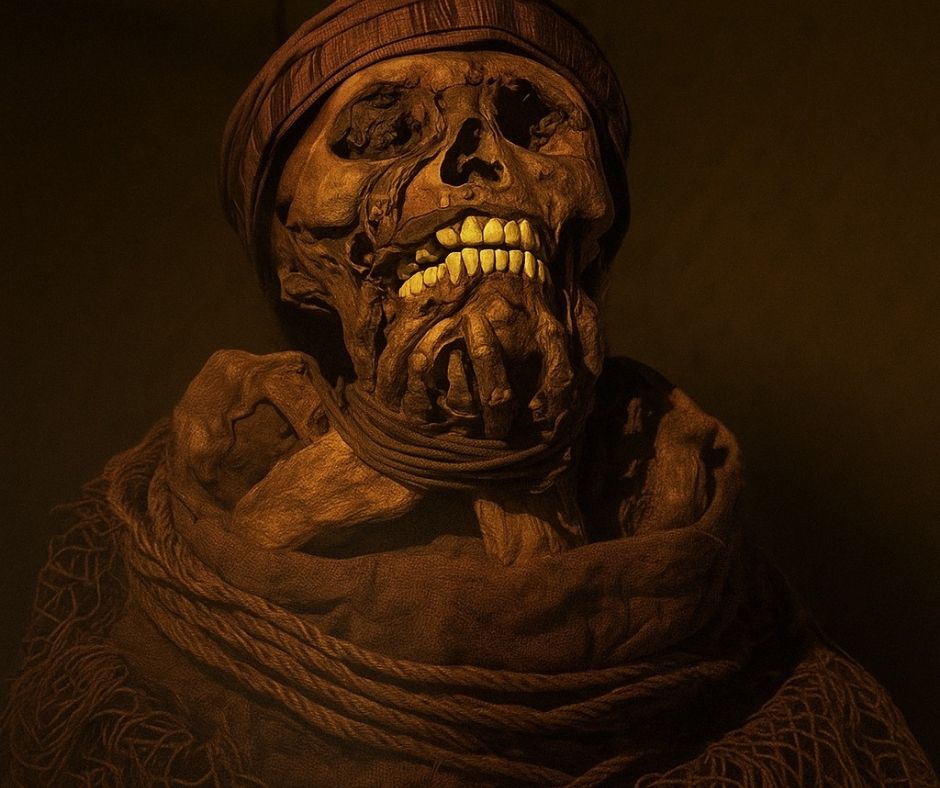Discovery of the “Desert Oracle” Mummy in the Eastern Desert, Egypt

Cairo, Egypt – A recent archaeological excavation in the rugged Eastern Desert of Egypt, specifically within the Wadi Hammamat region, has yielded a remarkable and somewhat unsettling discovery. Researchers from the Egyptian Ministry of Antiquities, working in conjunction with the University of Bologna, have unearthed a mummified individual, provisionally dubbed the “Desert Oracle” due to the unique preservation and unsettlingly expressive facial features.
The mummy, found meticulously wrapped in layers of rough-spun linen and what appears to be finely woven reed matting, was interred within a small, previously undisturbed rock-cut tomb. The tomb, located along an ancient trade route that connected the Nile Valley to the Red Sea, offers crucial insights into funerary practices and social structures of the Late Period or early Roman era (circa 600 BCE – 100 CE) in this often-overlooked desert frontier.
What immediately struck the archaeological team, led by Dr. Amina Sharif, was the unusually well-preserved skull and facial structure, exhibiting a macabre yet compelling expression. The exposure of the maxilla and mandible, with strikingly well-preserved dentition, suggests either a very specific and perhaps rapid desiccation process or intentional manipulation during mummification to achieve this effect. The intricate wrapping around the lower face and neck, along with what appears to be a headdress or turban-like cloth, further points to a unique individual, possibly of high status or a figure with specific ceremonial roles within a desert community.
“The location itself is fascinating,” Dr. Sharif commented. “Wadi Hammamat is renowned for its ancient quarries and its role as a vital corridor for gold and other precious resources. To find a burial of this nature, so distinct from the typical Nile Valley mummification styles, suggests an adaptation of funerary rituals to the dese
